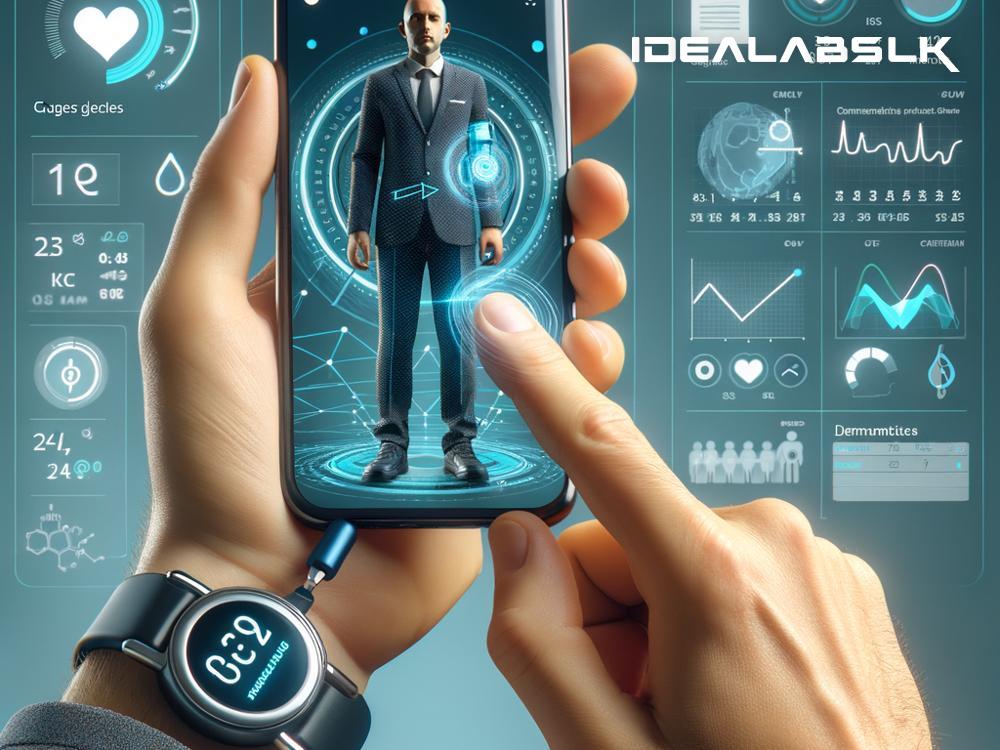How Health Tech is Improving Diabetes Management: Real-Time Glucose Monitoring and AI-Based Insights
The healthcare world is evolving rapidly, and one of the most exciting developments is the use of technology to manage chronic diseases like diabetes. Living with diabetes can be challenging, constantly having to watch what you eat, remember to take medications, and regularly check blood sugar levels. However, recent advancements in health technology, particularly real-time glucose monitoring and artificial intelligence (AI)-based insights, are making it easier than ever for people with diabetes to keep their health in check. Let's dive into how these technologies are changing the game.
Real-Time Glucose Monitoring: A Game Changer
Traditionally, checking blood sugar levels involved pricking your finger several times a day to get a blood sample for glucose testing. It was uncomfortable, inconvenient, and provided only a snapshot of your glucose level at a specific time. Enter real-time glucose monitoring systems, a revolutionary technology that is transforming diabetes management.
Real-time glucose monitoring devices are small, wearable gadgets that continuously track your glucose levels throughout the day and night. They typically involve a tiny sensor placed under the skin (usually on your arm or abdomen) that measures glucose in your body fluids. This data is then sent wirelessly to a reader or a smartphone app, giving you instant access to your glucose readings.
With this continuous feedback, individuals can see how their glucose levels fluctuate with daily activities, meals, exercise, and sleep. It empowers them to make informed decisions about their diet, activity levels, and medication on the spot, helping to prevent dangerous spikes or drops in blood sugar.
AI-Based Insights: Smarter Diabetes Management
While real-time glucose monitoring provides valuable data, interpreting this vast amount of information can be overwhelming. This is where artificial intelligence comes in, turning raw data into actionable insights.
AI algorithms can analyze the continuous stream of glucose data, along with other health metrics like heart rate, activity levels, and food intake. They can detect patterns and trends that may not be obvious at first glance, such as how certain foods or activities affect your blood sugar levels. Based on this analysis, AI can provide personalized recommendations for managing diabetes more effectively.
For instance, AI might suggest the best times for exercise or adjustments to your diet to help stabilize your glucose levels. It can also predict potential risks of high or low blood sugar episodes before they happen, allowing you to take preventive action. These AI-driven insights make diabetes management more proactive rather than reactive.
The Impact of Health Tech on Diabetes Care
The integration of real-time glucose monitoring and AI analysis into diabetes care is having a profound impact on individuals' lives. People with diabetes are gaining greater control over their condition, leading to improved health outcomes, such as:
- Reduced Risk of Complications: Continuous glucose monitoring reduces the incidence of severe hypoglycemia (dangerously low blood sugar). Better glucose control also lowers the risk of long-term complications, such as heart disease, kidney failure, and nerve damage.
- Enhanced Quality of Life: With less time spent on finger-pricks and more accurate glucose management, individuals enjoy a better quality of life. They can participate in daily activities with less worry and more confidence in managing their diabetes.
- Informed Healthcare Decisions: Real-time data and AI insights provide a more complete picture of an individual's diabetes, enabling healthcare providers to tailor treatments more effectively.
Looking Ahead: The Future of Diabetes Management
The health tech landscape for diabetes management is still evolving, with ongoing advancements in sensor accuracy, AI algorithms, and integration with other health monitoring systems. Future technologies may bring even less invasive monitoring options and more sophisticated AI tools that could predict and automatically adjust insulin doses.
The ultimate goal is to make living with diabetes as seamless and hassle-free as possible, reducing the burden of the disease on individuals and society. With continued innovation in health technology, that future looks increasingly promising.
Conclusion
Real-time glucose monitoring and AI-based insights are at the forefront of the technological revolution in diabetes care. By offering timely data and personalized guidance, these health tech tools are empowering individuals to manage their diabetes more effectively than ever before. As we continue to embrace and refine these technologies, the hope for a less burdensome life with diabetes grows stronger, making it an exciting time for both individuals living with diabetes and those involved in their care.

